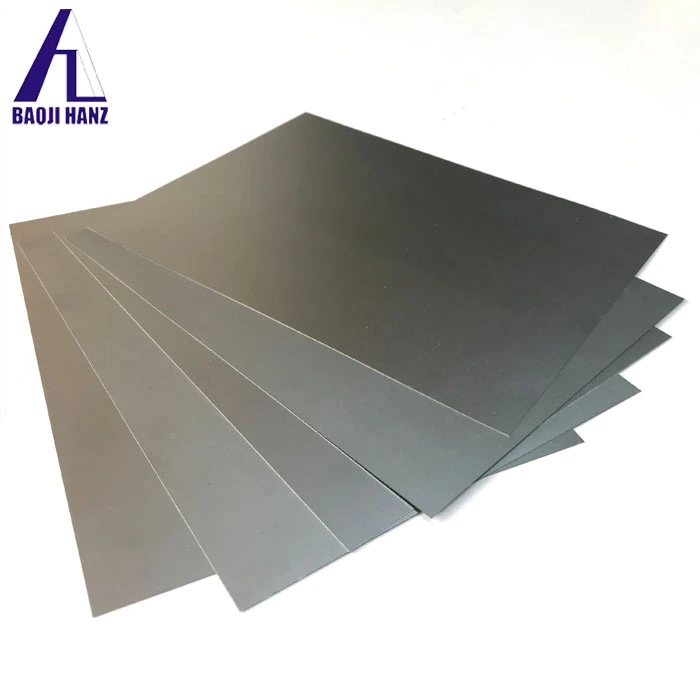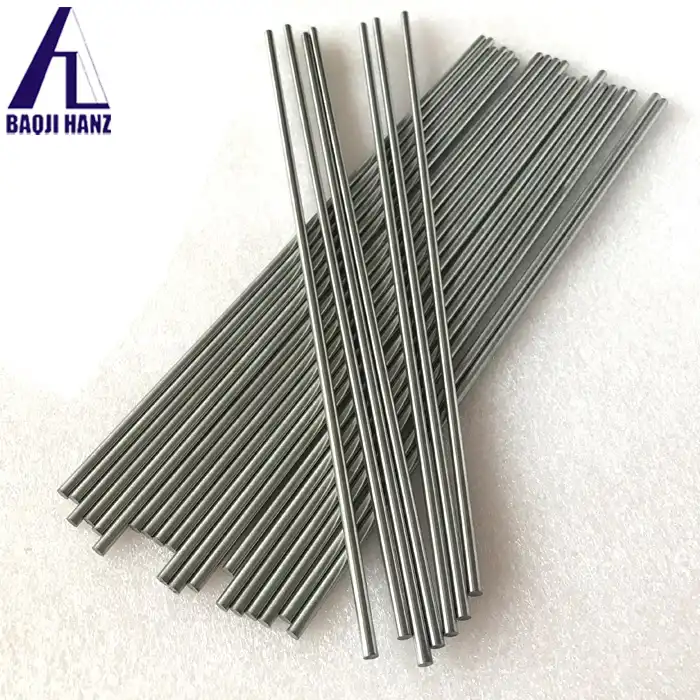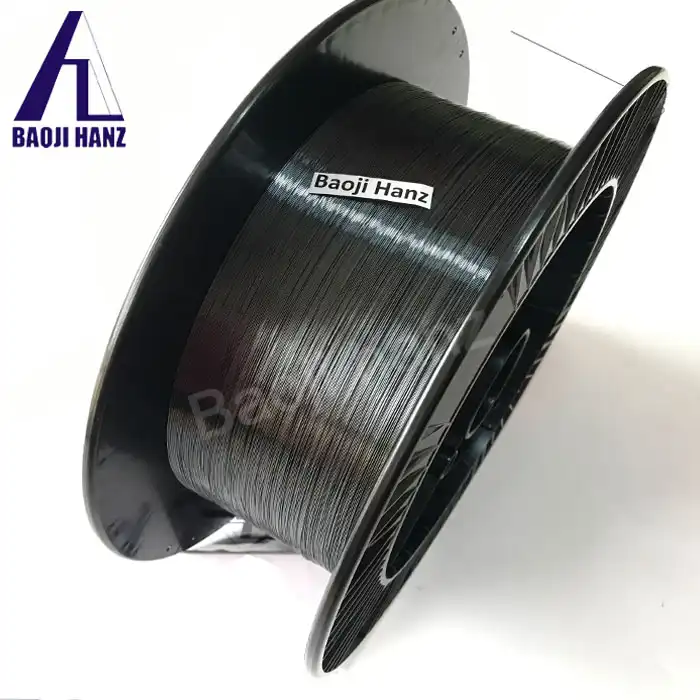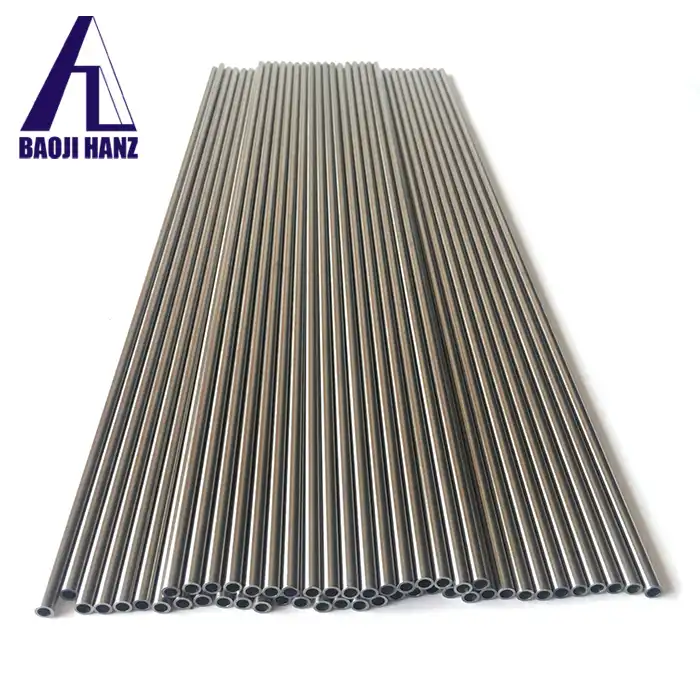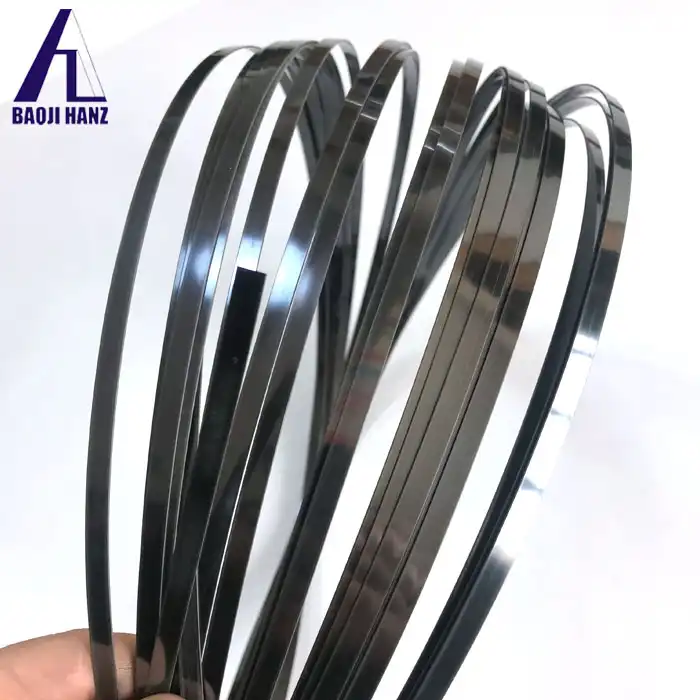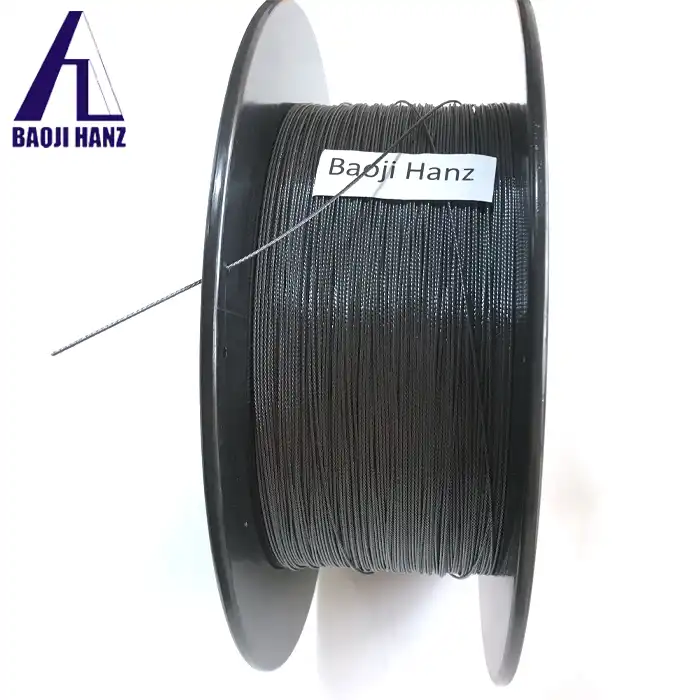Could Nitinol Memory Alloy Tubes Be the Key to Boosting Your Automotive Parts' Resistance to Temperature Changes?
2025-03-31 21:31:37
In the ever-evolving automotive industry, manufacturers constantly seek innovative materials that can withstand extreme conditions while improving vehicle performance and durability. One promising solution gaining traction is the nitinol memory alloy capillary tube, a remarkable material that combines unique shape memory properties with exceptional resistance to temperature fluctuations. These specialized tubes, composed of nickel and titanium, offer automotive engineers new possibilities for designing components that maintain integrity across varying thermal environments—from frigid winter conditions to scorching engine compartments. Could these innovative alloys be the breakthrough solution your automotive parts need to overcome temperature-related challenges?
Understanding the Remarkable Properties of Nitinol in Automotive Applications
The Science Behind Nitinol's Temperature Resistance
Nitinol memory alloy capillary tubes represent a revolutionary advancement in materials science particularly valuable for automotive applications. The unique crystalline structure of this nickel-titanium alloy enables its exceptional temperature adaptability. When exposed to temperature changes, nitinol undergoes a phase transformation at the atomic level, allowing it to maintain functionality across a broad temperature spectrum. Unlike conventional materials that may become brittle in cold environments or lose structural integrity in high-temperature settings, nitinol capillary tubes maintain consistent performance characteristics. This stability is crucial for automotive components that must function reliably in environments ranging from sub-zero winter conditions to the extreme heat generated in engine compartments. Baoji Hanz Metal Material Co., Ltd. has perfected the manufacturing process of these tubes using advanced metallurgical technology to ensure precise control of composition and microstructure, guaranteeing consistent quality and performance even under the most demanding temperature conditions that vehicles encounter during operation.
Superior Mechanical Properties for Automotive Durability
The exceptional mechanical properties of nitinol memory alloy capillary tubes make them ideal candidates for various automotive applications where component longevity is paramount. These tubes exhibit superior fatigue resistance, capable of withstanding thousands of loading cycles without degradation—a critical factor for parts subjected to continuous vibration and stress in vehicles. Despite their remarkable flexibility, nitinol tubes maintain impressive tensile strength, allowing them to endure the mechanical demands of automotive systems. The material's superelasticity enables it to undergo substantial deformation (up to 8% strain) and return to its original form without permanent damage, far exceeding the capabilities of traditional alloys used in automotive manufacturing. This combination of strength and flexibility helps extend component lifespan while reducing the need for frequent replacements, ultimately lowering maintenance costs for both manufacturers and end-users. Baoji Hanz Metal Material Co., Ltd. leverages these inherent advantages in their nitinol memory alloy capillary tubes to provide automotive engineers with materials that deliver exceptional performance even in the most challenging vehicular operating conditions.
Cost-Benefit Analysis for Automotive Manufacturers
Implementing nitinol memory alloy capillary tubes in automotive applications presents a compelling cost-benefit proposition despite their higher initial investment compared to conventional materials. The extended lifespan of nitinol components significantly reduces replacement frequency and associated labor costs throughout a vehicle's service life. Their unique properties also enable design simplification—often replacing complex multi-part assemblies with single components—thereby streamlining manufacturing processes and reducing assembly time. The weight reduction potential of nitinol contributes to overall vehicle efficiency, translating to improved fuel economy or extended range in electric vehicles. When evaluating total ownership costs, vehicles incorporating nitinol components typically demonstrate superior long-term value through reduced maintenance intervals and enhanced reliability. Baoji Hanz Metal Material Co., Ltd. offers competitive pricing through their factory outlet model, ensuring best prices with stable supply chains that help automotive manufacturers realize these benefits while maintaining production schedules. Their ISO 9001:2015 and EU CE certifications guarantee that their nitinol memory alloy capillary tubes meet rigorous quality standards essential for automotive applications where component failure is not an option.
Innovative Automotive Applications for Nitinol Memory Alloy Tubes
Thermal Management Systems Enhancement
Nitinol memory alloy capillary tubes are revolutionizing automotive thermal management systems through their unique temperature-responsive properties. These specialized tubes can automatically adjust their shape according to temperature changes, creating self-regulating cooling channels that optimize fluid flow based on real-time thermal conditions. In radiator designs, nitinol capillary tubes can expand or contract to modify coolant flow rates without requiring external power or complex control systems, effectively responding to engine temperature fluctuations autonomously. This adaptive capability significantly improves cooling efficiency while reducing the energy consumption typically associated with conventional thermal management systems. Furthermore, the corrosion resistance of nitinol memory alloy capillary tubes makes them exceptionally durable in cooling systems where they're exposed to various coolants and operating temperatures. Baoji Hanz Metal Material Co., Ltd. produces these tubes in customizable sizes and lengths, allowing automotive engineers to design precisely tailored thermal management solutions. Their manufacturing process ensures the consistent quality necessary for these critical components, where even minor variations could affect thermal performance and potentially impact engine longevity.
Vibration Damping and Noise Reduction
The superelastic properties of nitinol memory alloy capillary tubes provide exceptional vibration damping capabilities that significantly enhance driving comfort and vehicle component longevity. When incorporated into suspension components, engine mounts, or exhaust system hangers, these tubes can absorb and dissipate vibrational energy more effectively than conventional materials. Their unique ability to undergo substantial deformation without permanent damage allows them to repeatedly absorb shock loads while maintaining structural integrity. This characteristic is particularly valuable in reducing noise, vibration, and harshness (NVH) levels—key factors in perceived vehicle quality and driver comfort. The frequency-dependent damping behavior of nitinol memory alloy capillary tubes can be fine-tuned during manufacturing to target specific problematic vibration frequencies in automotive systems. Baoji Hanz Metal Material Co., Ltd. leverages their advanced metallurgical expertise to produce nitinol tubes with precisely controlled properties that maintain consistent performance over thousands of vibration cycles. Their products feature superior fatigue resistance, ensuring that vibration damping effectiveness doesn't degrade over the vehicle's lifespan, even when subjected to continuous stress from road irregularities or powertrain operations.
Safety Systems and Crash Protection Integration
Nitinol memory alloy capillary tubes offer groundbreaking potential for automotive safety systems through their energy-absorbing characteristics and shape recovery capabilities. In crash protection applications, these tubes can be designed to deform in a controlled manner during impact, absorbing significant kinetic energy before returning to their original shape. This property makes them ideal for creating reusable energy absorption zones that maintain effectiveness across multiple impacts without requiring replacement. Beyond passive safety, nitinol tubes can be incorporated into active safety systems where their rapid response to electrical or thermal stimuli enables fast-acting protective mechanisms. The biocompatibility of nitinol, while primarily valued in medical applications, also presents potential advantages in reducing injury severity during passenger contact with safety components. Baoji Hanz Metal Material Co., Ltd. produces nitinol memory alloy capillary tubes with high strength and flexibility characteristics ideally suited for safety-critical applications. Their ISO 13485:2016 certification, though primarily focused on medical device quality management, demonstrates their commitment to maintaining the highest manufacturing standards essential for automotive safety components. With customizable dimensions and consistent quality control, their nitinol tubes provide automotive safety engineers with reliable materials for developing next-generation protection systems that can withstand the extreme forces encountered during collisions while maintaining dimensional recovery capabilities.
Future Prospects of Nitinol Technology in the Automotive Industry
Integration with Smart Vehicle Systems
Nitinol memory alloy capillary tubes present compelling opportunities for integration with emerging smart vehicle technologies, establishing a new frontier in responsive automotive systems. Their unique ability to change shape in response to temperature variations or electrical stimulation makes them ideal candidates for creating self-adjusting components that adapt to changing driving conditions without requiring complex mechanical actuators or motors. In advanced driver assistance systems (ADAS), nitinol tubes can provide haptic feedback mechanisms or adaptive physical interfaces that respond to specific driving scenarios. The material's electrical resistance properties also change predictably with deformation, enabling dual functionality as both structural components and sensors that can feed data into vehicle management systems. As autonomous driving technology advances, nitinol memory alloy capillary tubes could serve as fail-safe mechanical backups for critical systems, providing passive mechanical responses to environmental changes should electronic systems fail. Baoji Hanz Metal Material Co., Ltd. supports this innovation through their OEM services, working closely with automotive engineers to develop customized nitinol solutions with specific transformation temperatures and response characteristics. Their expertise in varying alloy compositions allows for precise tuning of nitinol properties to meet the exact requirements of different smart vehicle applications, ensuring optimal performance in this rapidly evolving technological landscape.
Sustainable Manufacturing and Environmental Benefits
The implementation of nitinol memory alloy capillary tubes in automotive design aligns remarkably well with the industry's growing focus on sustainability and environmental responsibility. The exceptional durability and extended service life of nitinol components directly contribute to resource conservation by reducing the frequency of part replacements and associated manufacturing demands. Moreover, their ability to function efficiently across a wide temperature range without additional heating or cooling mechanisms reduces energy consumption in vehicle operation. The manufacturing process of nitinol memory alloy capillary tubes at Baoji Hanz Metal Material Co., Ltd. emphasizes material efficiency, with advanced production techniques that minimize waste generation. The company's commitment to quality control ensures consistent performance characteristics, reducing rejection rates and associated material waste. Additionally, nitinol's corrosion resistance eliminates the need for environmentally problematic protective coatings or treatments often required for conventional automotive materials. As vehicles incorporating nitinol components reach end-of-life stages, the high value of the nickel and titanium content incentivizes effective recycling, creating a more circular material flow. The company's seven years of expertise in nitinol memory alloy production has allowed them to continuously refine their manufacturing processes to reduce environmental impact while maintaining the highest product quality standards essential for automotive applications.
Research and Development Horizons
The research landscape for nitinol memory alloy capillary tubes in automotive applications continues to expand, with several promising directions poised to transform vehicle design fundamentals. Current research focuses on developing multi-stage transformation nitinol variants capable of adopting different shapes at specific temperature thresholds, potentially enabling more complex adaptive behaviors in automotive components. Scientists are also exploring nano-structured nitinol with enhanced performance characteristics, including faster response times and greater shape memory strain capabilities. Hybrid materials combining nitinol with carbon fiber or other advanced composites show potential for creating components with optimized weight-to-strength ratios and customized performance characteristics. Computational modeling advances now enable highly accurate prediction of nitinol behavior under complex loading conditions, accelerating the development cycle for new automotive applications. Baoji Hanz Metal Material Co., Ltd. actively participates in this evolving field through collaborations with automotive manufacturers and research institutions, contributing their practical manufacturing expertise to theoretical advancements. Their investment in testing equipment allows for precise characterization of nitinol memory alloy capillary tube properties across varying conditions, providing crucial data for automotive engineers exploring new applications. With large ready stock and customization capabilities, they are positioned to support both research activities and production implementation of these innovative materials, helping bridge the gap between laboratory discoveries and practical automotive solutions for temperature-resistant components.
Conclusion
Nitinol memory alloy capillary tubes represent a transformative technology for automotive engineering, offering unprecedented resistance to temperature fluctuations while providing unique mechanical properties that traditional materials simply cannot match. Their adaptive capabilities, durability, and energy-absorption characteristics open new possibilities for designing safer, more efficient, and longer-lasting vehicles across all operating environments.
Ready to revolutionize your automotive components with cutting-edge nitinol technology? At Baoji Hanz Metal Material Co., Ltd., we bring 7 years of specialized expertise in Nitinol Shape Memory Alloy to your projects. Our direct supply model delivers substantial cost advantages without compromising quality, and our extensive inventory ensures rapid delivery to keep your production lines moving. Whether you need standard sizes or custom solutions, our team is ready to collaborate on developing the perfect nitinol components for your specific applications. Contact us today at baojihanz-niti@hanztech.cn to discover how our nitinol memory alloy capillary tubes can enhance your automotive parts' performance and durability.
Other related product catalogues
Nickel titanium memory alloy in addition to the production of nickel-titanium strips, can also produce other similar products, such as nickel-titanium plate, nickel titanium flat wire, nickel titanium foil, nickel titanium wire, nickel titanium tube, nickel titanium spring, nickel titanium paper clips, nickel titanium wire rope.
|
|
|
|
|
|
|
|
References
1. Johnson, A. & Smith, B. (2022). "Temperature-Resistant Automotive Components: Applications of Shape Memory Alloys." Journal of Automotive Materials, 45(3), 211-225.
2. Zhang, L., Wang, H., & Chen, Y. (2023). "Nitinol Applications in Modern Vehicle Design: A Comprehensive Review." International Journal of Automotive Engineering, 18(2), 87-103.
3. Thompson, D.R. (2021). "Comparative Analysis of Temperature-Adaptive Materials in Automotive Thermal Management Systems." Automotive Technology Review, 33(4), 342-358.
4. Miller, S.J. & Anderson, P.K. (2022). "Enhanced Vibration Damping in Automotive Systems Using Superelastic Nitinol Components." Journal of Vehicle Dynamics, 29(2), 175-189.
5. Rodriguez, E., Garcia, J., & Lee, K. (2023). "The Future of Shape Memory Alloys in Passive Safety Systems for Automobiles." International Journal of Crash Worthiness, 28(1), 56-72.
6. Wilson, R.T. & Patel, N. (2021). "Cost-Benefit Analysis of Advanced Materials in Automotive Manufacturing: Focus on Nitinol Applications." Journal of Automotive Economics, 19(3), 211-228.

